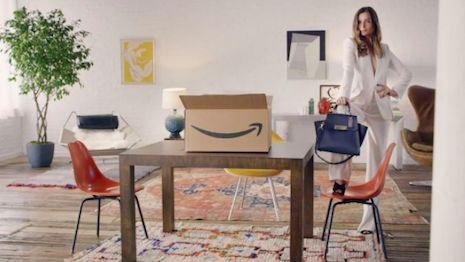Convenience is the number one factor that consumers equate with a positive shopping journey, calling for retail experiences that deliver seamless service both before and after a purchase.
According to a new report from Oracle Retail, retailers’ priorities are not aligned to consumers’ expectations. This is playing out in stores, as sellers place the most emphasis on experience while 56 percent of consumers crave convenience.
"Retailers need to better understand each customer as an individual versus a collective group to better align to specific preferences," said Jeff Warren, vice president, retail strategy and solutions management at Oracle, Minneapolis, MN.
"To do this, they should not only establish a holistic view of traditional attributes like demographics, purchase history and loyalty, but begin to develop a more sophisticated understanding of taste profile, behavior, their role as influencer or influenced, for example," he said. "The data density associated with understanding how to most effectively engage your best customers, your most loyal, your most profitable, is not trivial."
Oracle Retail’s report is based on a 2019 survey of 15,800 consumers across Europe, Asia Pacific, North America and Latin America, which was conducted by Savanta Group.
Priority gap
Across all channels, 51 percent of consumers associate convenience with having a positive retail experience. This comes in ahead of immersive brand experiences and discovery, which were both named by 35 percent of respondents.
While convenience is consumers’ top expectation across both digital and physical retail channels, retailers have different ideas. Retailers’ top priority for their online stores is convenience of the user experience, while they focus more on brand immersion in bricks-and-mortar.
Thiry-six percent of consumers say they believe discovery should play a role in their physical shopping experience, compared to just 18 percent of retailers who prioritize it. There is also a significant gap for giving advice, something that 22 percent of consumers re looking for but only 6 percent of retailers are focused on.

Consumers shopping in physical stores still prioritize convenience. Image credit: Oracle
In ecommerce, a frictionless experience often hinges on shipping. Eighty-six percent of consumers believe that retailers should offer them the choice to pick the delivery option that works best for them.
Almost half of consumers say that the delivery option they would prefer is unavailable at least some of the time, pointing to a potential for retailers to expand their choices.
Close to a third of consumers would buy something that was more expensive just to get faster, free shipping.
As shoppers seek out speedier fulfillment, 92 percent say they would like free one-day delivery, even if it means that packages ship by drone or driverless car. This is up from just 43 percent in 2018, marking a shift in attitude.
Shipping is a make or break part of the online shopping experience, and 13 percent of consumers would not return to a retailer if they failed to deliver at the promised time.
Returns are also a potential pain point, with 57 percent of consumers saying that returns are a hassle. At the same time, 57 percent of retailers believe that returns are easy, indicating a gap in perception.
According to shoppers, traditional retailers have the easiest return experiences, followed by online sellers and then direct-to-consumer brands.
Convenience also translates to a desire for technology within the retail experience.
Forty-one percent of shoppers would be interested in a subscription fashion service that automatically sends garments based on the consumers’ style. In the hypothetical scenario, the consumer would just return what did not work.

Consumers are interested in subscription boxes. Image credit: Trunk Club
Meanwhile, more than half of consumers would like the ability to virtually try on items such as sunglasses.
"Technology is important for consumers, specifically relating to enhancing convenience and better meeting their expectations, but they also have little tolerance for suboptimal experiences, particularly when it comes to the basics," Mr. Warren said. "Technology that assists with inventory, expedient delivery options, frictionless returns, are all now considered table stakes by consumers, with them taking for granted what is not operationally optimized for the retailer.
"New offerings like virtual closets or drone delivery can be intriguing, but if the rest of the interaction is poorly executed or not profitable for the retailer, customers will walk and profits will erode, reinforcing the importance on nailing the basics first," he said.
"A platform strategy that features data science, machine learning and artificial intelligence, is cloud-based and autonomous is critical to the future success of retailers relating to balancing both physical and digital services. The volume and variety of data – from item, order, inventory and customer – is far too dense to effectively capture, normalize and derive meaningful insights by any other means."
Loyalty lessons
Consumers want brands to be transparent, and 47 percent of consumers say they are more apt to buy from new brands that they find honest and authentic.
In the event of a faulty product, two-thirds want retailers to inform them of a defect or recall immediately.
Six in 10 shoppers would hold a retailer responsible if a product is found to be deceptive. But 52 percent say they would be more willing to trust a store again if it takes immediate action.
Twenty-one percent of millennials and Gen Zers are untrusting of retailers. On the other hand, 39 percent of brands believe that consumers trust the information they share about products.
As many experts say that customer experience has reached a plateau, practitioners need to drive different business outcomes by taking on new initiatives.
With the retail environment changing rapidly and drastically, brands, retailers, personnel and partners need to learn how to trust each other. Taking risks and trying new things will be essential to circumventing the customer service stagnancy, but it will take full trust to do so, said a Confirmit executive during Forrester’s CX NYC 2019 conference (see story).
Along with building trust, retailers can succeed through personalization and relationship building.
Personalizing consumers’ retail experiences can lead to loyalty and increased spending, according to a report from Boston Retail Partners.
Today consumers expect more individualized communications and interactions with retailers, with 59 percent saying that personalization impacts their purchasing decisions. Identifying and appealing to shoppers with relevant offers or communications can help to establish a relationship between consumer and brand (see story).
"Retailers that place the customer at the core of every business decision and process will be in a better position to architect exceptional customer experiences both now and in the future," Oracle's Mr. Warren said. "By pivoting to customer, a retailer can effectively accelerate beyond best practice to next practice retail.
"Imagine a world where you could go from markdown optimization to markdown avoidance, from order orchestration to predictive inventory placement, from returns processing to capitalizing on the moment," he said.
{"ct":"QWaQlNRMqg9xmuE1rUmas5qBtk\/UOutDfOR+ZwStCb0upxdB+BAM4bpRHsE3vr\/RN2om52LjF13zIHSZHGKzd\/\/rkxznrXAgx6B6iIOjLpudvtHYYRxFy1ZKrtYdhcXAAnybj42QbyA3\/jVWmetDi1J0iorEn02ipQiJkacgUAHFpkwXED5hACfjGKgGElgNMwbyjUXgtVeyue30XS44fYVZgOphqCtuUM2JovA\/VjQBdMGzt\/iN+CZXWtDDesovlp2I69NcHlm+Iqk5DHf2Ex+CAE7TDAcZWM3hAxsKqUsGrUflT7U7LLPsJu6gD6gMqKNqckKVbDw9WKgezIXc5l9pR66EaQW0dz9A+jh2O4iMbGmFI9aIh6HjCDkkw\/fUxbP1fkDWx5EWuu5lm\/vbMNhPsLIdkQYOSpJdJ+hCM2jBbEDsOT0no0bbHNRjzMJGJ2KQCsRakc4pPum15E3t3GIxXK+PI4iRcqwMpJM6S25+7PAN7XYWzv0NusT\/bkCAFHCjI9C++\/xamcjC1RkpJ3bHezlU87QKUz0gaiQ5RZCC9NiosceCYIvla14dtiZ+HvWRPZbpQtK22BUhzVKMiAnOZdeHGzV9K3X2Rp0VjKgokv+vQILS+LeVRfA6O6bZ5nX0TjdWyqPA\/nc6WBwlMmtD4A714i3NUfPulmgW3GNYVipq0zUs7PXhXCOmfqD2y4DwLGHTKN10h1LGSIN6pDIKIsNXQt0Sofqnvc3Z8vIlLG8X1wfxzTt\/Gx0QkCfCmfk1vkG0Fi9\/AP+AZpmGGWiLPk8uvvQaPQbCg9HhV\/ehl9KImqUNaGSTSXjsIE84lU\/6l2cYKmAt5TUiTfGk2thWVoQkCPuhldRXnMH2O\/B8nuTMxdqF3xb6+QndaA3bWyEC3yzhEbaKIFCVaTfKkk2yDNkmtm5PW+v3zWEr4niX27m7dXp1puQc9MThtKznkK8mP26EWVJaYHnAIHiIQ8dfBekP5FdubmVbzl3XrcD+LW7wSNriZaVL6tuN3mEJnECuOsGx21PDqN6s2Ul6ijgLJWytPDoGcp0W4AWn63\/FwQhhtp4ds0lhDC13eQPeDuBL5p9\/e2bHxKmwlbo7b7HdddZCEfqaMQwPXhDTg2j+nwSwMoblw2utn4e67wh76BVFzgVfVrK\/9WWkdnOvAW2DbMZZNu90MnbQ1VUdOec5mDiVDTMR+LfcQi1ydPZCKgu28jMvurjQdN+5VWORvzRn5mT+ZL2+A4oI1NC1JzWXvoCmz0mw0G74VoliAAq2Lce4LK4hbnErpzePA0wQbaI\/bGrmT6S0smG6XgelAIcEc0\/043TZ2iQLO54qKhCY\/a+SHFVsUqdUAPY+28JpTPFg4+lxIwHUvoyZaVCiCOB0im7XhFMCvURCMmGr5\/TfwHSFGYOWqo4InNCfjDnEhOaatibgzLDBIZoINV+2YYbw5mpOhREZqXdUzrID333RvmRpJWXnbCDtNh7m3vLlF8DtFIZuZGthzFiU62MuLNqLWfciCvvHH6jDq+6FEkxDRvEn0Jipp8G54BbrDgIdZWTE7nMB+6mhFrU2BuaXs25XJPZSeJNoTRpfsy0PlsqtNArYFMMGhUsBOImgcUXxe7ZkODs5mnvVNBGmxg5T3TfvLRP1ebG4+j\/zHXK0JKffZeee+y9KY56QQHlhDuYffuDSwiQPx7rqwVUly7jMjuZi4S8ybeYVx4HcdrDT57SwmCyk7ijoySx6fuaD\/YmFpf1hgkK7NuNDTs3BwWQv95N3Rd0p9ROexfKMHuSG2Pth87tDG9dmXplY0zMUFj+JRQwrawMofWZmUITfYHlBbC7+Z5AiT\/Z2z\/35ycGMx1dMkjQblkcsgtZlXNRYl2UOHRT+yuqYHyoJR1iuPNeo36T9bRLdGngvn8Psce\/KaLPB3\/AVtV\/Ws+TkDZRoYW3zac+k5oNIhtDmOvfRrNZ9eRXr\/oRXuCKW6ch7KQM74nW80mhSN0eSz58w7ZUzzqjROWGelnlXPRhpCOHhVM9qivkrPxU25qeKXWoMimNmbTjsr8DPpywvJON7\/vihpJsrqDRbJc45\/IGCpcHeYbndGQfQlNTo1hy5qqw9KWdcFCavLJyZUL1GxNatiWGFH6Ic7W16feqQcExmJrZWHwIPPtoQbaG5KnPcLiUMkgQ46i+qbeuAgzAjpyAkfLlmJMGaiRQi4AebrqcQH+GKE8xkDofPN9\/2n4pqcGjzIySTGECx\/JTMuOU8GHqtobNEvCiCd\/IZTlOpv\/zlebXl19iysj0ZZnuyS1MjVOXmNbaL4jsiZKN\/Nkhmh+lham5VIaZs8bPpgcWn8ar655BeTgII4ZcxbBAzniYC+b4EaIbT3H0k\/JNzHhWuU1bckc88umjSGMRrazJJWiwMkv4QbUEjzRGH8ce1Pkt3uZDgWp5Q9BHgJo70DIFKGvD56gmKde1kDJJr9rkflQPNpGie8ZOnvCbaDRAHoecmXy\/E5\/Ap4LkmuOiclq9yWkd0eLpVQ2H1bfPCfUh+ZWEw0QyybWJbBuZrp27QNNBSuRORuVSbs+qlUOuAuB385Tab95qyPQV3NBVQjZaqQlJpDaCuzetuAzEtnrjnr7G6ji9B7ATKDT+52M1pF6oLqHHrJ1ou3C4U127NUKrXIEbEUsIALwpN70aTfOl\/Fq2VFffV62KyuOcqwLYXiYrXanwGin3tUrcAMMPB54DI89QzR2yOBPL\/7b42\/2azia5BE8Hk3fojrIIz51gBtljRd8thj5RBFwgoxB1sTKKo9dLl7pIGQG+2skJwOmjOmd02ZERcdQHs1\/9GVndpVg8RG2vw9puCPKr0KVuNONrcB7Pn\/dcxPVUct5InfozGkby39CVA\/HrlwaxGvxp8+jskGMuE1hd16JqxlueSQjyfd7hhmmh72O1SePLzxr\/k66tFVFy5JUGIAZmkG8Zy+JSEz8GIVtC9siznLYEYlnM26CazfwnmZX4HDF8TXlbDtun4yExWioP1mYw5SB3ez8z9nlwd3WO4hSLI3Xr\/EF6\/tp23ybKoYbi\/dWmEcGxDONuwUz72Z6e+un62h7PUxHoeEcJ6xwmW\/agQ9hyq0vZGGh04tILRPrz2Y4U+XR9ZnT72VH15B4bhCVehWECtrrzVk\/oZBVUXOPC2kNX66SpXwBdaxyQ19ozqUWo6Bw\/ThNRDGTnk2KNXxU26L35YRCunFtsbWa3fV7jxbVjAYV4t5+orAEcygBiaFltGjhm8rLtbsT\/iaFbqS2DXxAs5xLYvsb9Gbd0Ay8wuzRSKZOpZyTExT52iOYiFrxeScbDGSIXk4wqhqUChiOM9ZuEGIV0h6xwCqbnQhvKhc7JQcmcicv+i6pNkS+2Ys+AVhaqQgKsFggjA4MnG1eif2rL0CJek50kZGyG1m4nxSyyhGhHBPoRjL2n+ao14d5FvQ4As7+v1BGrDzJziryrjIacD+zzARw4OO\/o+oRRLNR2oWxwP8r2CyJ7gWR5yl0GO0cU19i1ztco\/AogtDZuHOwvY4+4keTJCzeNUBWRSrK2Bo7v9BvaoPQmWUS+bqqan6CHc\/ImEfPconTjHLcz4c\/9qTM6weeQjDN0MTVpKjEW3wlXIJY5tx\/EMq+86rpHM06BxmxSVSkensyHQMHpu4HaF0g\/H9l2nPodAApOTmNyQVn68aeZRcFsjDhG5Yqjz4IQmE\/\/C+tOsAGHflBahOdErDgrQ9iD95L0T\/qifVAoQrXhwBL6U1SRZHtWtDSXmBwBrTosOJ5maaycCF6+cGfZZRazYkB2+AT4BAtPUmw5pbCxWcc83TqCIfvYCR8e6sq+se78QQbZDlf74yo8KntXkbjnbP9yJpUYwi6blbAPNW8Or8NFNSzvfKMQotpCQwTWsYvIshh3Zs0W\/eEdaqwiKy+H9osIYZ2Q1oeyD6Yqe70ykK51jmPMSxS9xcP\/pW3iM4UC50aq22\/IvGJvcrL7dJcSzluAqz7jAsliBsr5vyCs5BIaJt+eYbJfpXiHPbmA33BN5DMeQ3FTpEDXSUGq9X4hl+tp5fRVD2YyTAg4nApxT+BEZSxDZt+BW+SLTqk58yQ9F8qnLD3rYFoC2HRJwUFFAnd5Fnz74K\/2cHOmMgDRPQq+o+uxtU1EwArMDXrcDOzu4od1kzNqBYLq0WwGppAH6g75htQ2hNLKnq9MjjUGsuvsJZB+DpPz72mmromqgDDwpBwTXgsdXmqaiazeYlAOLz359JvHoAWrcwjIL\/xdxRrp1iD3POKr0JlnHpy8nwrA9cCJhT1PY+aFS8IHY82aWhHmHrWQGGp69akePwPQ0wPSOoYRLdExTO9jrl49u\/6YEBl3R4JKyxyKM6kbhCgu0iKn8KjGtdqOTpMymuMcNffz6Z6EWSI3ymjrEZwvEhIprcal07shBhNCJJbgRkbIOL98WXcgeLosPD0FJDIJVdjBo1jzRywoVZ+lfaN4Vof2ewYFpRCh+RGBAfAvJBZZReh3RhdzdfVkKUW7KABIohCzNAJGNXkON0Guo4\/MpHuMNE9w2gvkJgjUhaOwqtYCXvpiYw3XMwca1vC9VbIdlf0KimrvSRpGKcQIdz2EJru4keEDYvQNtkUma2\/MI5Ut5yONKhAzkZqr6rFXyIPbGPli5vxAbmL8oRjpRaYVrcpW7vyu19djEd6osYIFxh3\/dGNmn98KEk21UcoGRFdx1vnU9J+2F3FrIo0BI7q\/HTlbw0VJotD60BT12VKiff7rGs9wXsN2CXGngDCu+W2fXq\/QY15VokzjFRUqn62RdL74b4MiChUFoW24yvkD+dlCRZVjJy4tX+ID87xjXsZFz+yVXgGWeOFWvtvuIKknrMSmo4zqqyseW5abciUxVDJ6XIAF6ZiDSwjDeo\/CCURLvVErcGGFCUBX3PSBsQr9hmgxkdBsNL7ExchZSvn6lis\/1ZbUN1ZpIcsnSOXtc5+H9ZTB\/mIXVimrAoB4zZkWVjKqnPJ1E1wXqeNlWBvMvrvuiFr2pzf7y\/wFb7naqC84007mLbu0e6aKsixPlJxb0NyF4LztQTvQzhOgsOhPMxm9QDC3N80tY4cdR1d8fuJIi16sQu2jzHs2ODHMWl1Vgt+v8D5WpPvusuaKRS99LqclLGGCqgInu2\/EzhCqbuUy8JPjmdjZWfm3oX7aIfGkoI+me7f9IDcqdNJC8VcilqAOCCPL6pMyUFOkpTAiuZUQqEGNuSNnkg0msRh2A9TYQWUns73ofRqYXBPaVMXLSuLQuqXCQtvzKgQD1vqeB2EraASeQ6ypd6nptwTrmmK5gB+SxNS0gKgkdEviQF82R1bG21P+ycbq4dQWFHBx2LCbulEFylZN5Rf\/gKOCYSgrsteVqGgCR+a4+Gto5nUeLHp3JwN2ZVhhE\/DfGtlZpUzo3Ro\/\/Es8ShhPVCga7T6Dr6E\/yFazgSMJGp1z+h2SBeLjnJ+HT3F7+kzrPPD1kWqH37boGTgZziLLozV588xUYr2ChHquQE9ua25XrAJOFdkY1hZFtxGlUa0Yn5HUzv\/T0x3iJKSW3zfVUhZlnvK7pSz6ep73sU1dUbAFfZPNqYZpdhQsjF8gaYMD5BjS9sqk0G4RM44Pt4aPhOW7z6s+d9UfGMaMecKVdbMyXw6YdXrMRQ4wIB\/wGqgYqCZzLH+t6c1TIEguQN6GYxFNwM3qoycLP91bcYGtnhgW9eLUcTb95n1OhwlxSneXxQxRIKYIzViRiTtzwxFQU8p0DGDmEM\/T1gUjIBPb+FSEMTT4ms2Y4LtpOJuIOwVoMGJpFwGEcstkHUtjzsBXyo7ExqR6VQ7chsB9AQsX8Udg8YB+H\/1Sz7Ehc9teW24zvxK1HjcU2ScnTFR3g+bESK2Eg5UpSbehMzLpNE3WFOT26kDhqeKmetd5YhyjEKjzEMbKXFldyIddq8k9A28PizNctVUc2kfUlTm8PNmPc4IqO2nwx3jxdmqGkqZKcbcIoFbStHwmf7jUF8VsI1FR1J19CYZARLeiLv7pdP4lFO3M\/No1JToqUM0zA+6uCtNuwJbLYys+LEFBBQy5niXeC54dSI85izGhdz7wxNy0c924L8+8D4NX4YEGHulMM0o8VyLJI+ZIfQz8e8ANH2h1nO45yXi7PCfCq3FRy\/j5lha92zPGgWlA2bgM1Y+h149i\/tYTfI7BIULrN9VhkngM61HqIiwJ0x5Lf69MUYe9fZQSmvbkX7lpaCSy5CYGX1YAvD\/K7TAQF\/uSM8eRl5Gwl9H+92Nis9GhBPMhSopVmD4fJJm4dYjyL3KWWOOnDtlZIsBh6egwSI6Qqr8wU8yy8jri2WcoEQUAMTiGtsJP+4yU1tAML3IaJg7xzSVafjmGuMnxKbsbXd\/H0rpWdMzhbLTQcPMwm60Z88e\/oHDXfupDqESpU++KpvRkIBTRvB6bn25kUB1rwXm6YkiZ8+dhT0jGQVSZtc8rMweBTOm5tZCp5jpw4dEwJEb6Ss6QioABXGOQedHCPXI25hpBbfZrgKLaQQRiF1ienueQpURP87jN2bPwKKkSVIQmKAEAZ6oUdAmkaSSHqlPLzP\/I9xyMUksAqID5864Kb29lB876idZynMBDKfzU3yGI9k35wkEWaEwKScY7Jf4MFXdFyNTGy9vG2VnRDlGIVw22kli4ZtuhkhVbQRPMxduuPasOsQ1T7fmwg8g7VIQQA6tQQ5X8TiLdMEM3cxGOUJGguv2MjxppNzO3QNOBvvabXJIlpSliIrW7tR64oUN7dRZ8sMjdb09roOIQbHOH1lKR2+RyNLDZEbn25Pbqi4HLd4iGmdloMofF1RztixyuWvafS+s\/9W5dWlRffZ6BY36GcXKWEp3TN8m+5c1dBM3HZaEru6kxSC8XZDpTO816HuwfK1TZ1gqyc7mj0sxq6LPcqOMEqU6DypEZro2CEOYqECNbIRXxijoZ8BEcWIr2y30JcpuuR5A9EO+fmXf0n9GZIYaNkqBxpRiNnG820Uw1CCRaDJf4mJXwUNz1w\/FbU9s3Et0Njc7ZH5S6xuIK2JBLVCA76QeQJ9s07uNmvwasSxypVEJxdZncBkRwwPHCDzzB9BEcoLxi9bv56j70Q\/m+fho3+FWTey8uObO6b65BBcrEzpMrZdtb0yle8fGrkX8OI0Kg13firFsS3j6lSJ03ltydI4J4r+5g\/Ma\/KY3R++uK30JLtUG1CdFbL+brXMjzWQpdwAbNhLMAfLvVJM2GyJyNPtaj8q7X7DLgohwdCs72\/WMAVuceCdpXBJkVdYngoGL5lg9XmfEoQjxqIbW98HZdRviQLO0AuekRy3xyxAmb9kN+nIUulAIrEtlMW2aFKDzPuChF8+7AC4ZArED5mYecGnq8+JD4rEyX5243E2clYBkIvF5JU9ja72z+LfxGyLxptNGOZiwspL\/EDX0ffmC3xL34o+1bE6Ge8D5oy34PxaUZMOy2JtJmBmuwhT3XTm+eXVfUwYZAVngN4XDpmF18Yo1I75YKotuglyuhu+mRRru8NfGk5HT7Ln8nAaqYfJ\/VCFtGEAtVceCwni3WScyQ+W+2c0kPL1Py5NgUA+fWcnDakvGDTgPDZud7C\/zcwbKSrgG4XzkSjfvMQCMVr8Oc\/GvMA9VdqBNS15gTl2deP9b+i5a7eOhKiu9GElzcO5QX14e6rdqb3gHhftGNYJ6jN563YfM1tTXAm1ethAHre8juJ\/HzM\/pynqnlFl9JZdU0G3imGDCdnwtkLLQ6h9dBbEP7hge5yaxUXoht7rtcr14PV0iSKFf9R3mnc75LQBWOuzavR6ASmaUjajr\/Aho+AjeUCaAgk3raMM1aq2oY4fJtd4NJfN5dThynSwd\/OkOucMc\/MgNxOnwT3R6cdUQ64\/E48Rtrg24fgnEaSe9X8EbhDVZJZ9Lxm8b+7QavOKNRDg0+vxw2DmumJAcCecErukSq1r1c6iq4zVwh1CK37o+LDRb0vLQQGQe7kKhKLWuWt0qogeMOzayGps\/1j2T8I7iOpmE8bE6msBTOoIPM+LD7B7tYiF8AKHF6C5OvEiZt2OBv7CtjMBJZmkAi4k6gtHjpbUu2eN9ilct7ucY\/1P+BwvhAAUofzOeFMKRsO3JMV1AY1tprHib68abVbx0JpT5N9vfUXZhkWDZQ5r6sIPOy2P3\/9SKcqYJrwhzSx\/bTu+fDqOKGk6h82eJm2CopxgJ00t+nRdpLAyOZhptQ0pVanJgk1Vrquaylgf+JTXU8V0v5ALt5pAuOqr8Lwvo1rJjHrIuBxPjtxetmx2jDs6VV3uYBtrq3v8PHSWaZj16w55DNDuD\/Urq7L1q0MxFnjPSV+E7BcybulqmbL4otaEXWZxrbw8yP\/zAw+AYDGMXLPGby7OEyMtY060D+D9uQRXwt3nK6hmYHzGXCnpaBqb3BwKw6OD4rUZBabkmbG0mPLXSsRk8dUiLtAvxbr7LyQtOp3xrhzy3v25TXtlfDQcCerz7nSzAvN2K84QlUTpri2DeaWoxxk4MJNEReV\/I1dzKMCR+FXl4PD\/b0o2cKt1pHwImFQFR+MgvPxTr1W1FKReePQEtIjELn+o3gnrsBQNSLVYEOGLYeYTycEzP0Hbjyll9b7sECOF2lQWT8PJcA2cIzaKS3FpYMUvCzvthlFMYN5R\/irXk8OvtwT\/Qc\/ipc5RMG2PhzSi2\/Amq97\/UQIMvgwfgj1ixJ14YsNNLr+7rNs1Zz+\/R+wpwfmHY4Dd4GUp3U+b49rxro+RGDz0IOOPeayipC2MLp1a\/0tEtNLtlSTXKJuybe2O7lg6OHF9YDoWl8ZNbhiouDs0oS\/blZ3Hq818phFyjtEWxJJjRjy9cBA5yJoPEHM36jt48bqnKIVOpgbBOvJH5BhUlhMkMo7VBj40aBkojn5K3tOwGvZKRS1Hy725BGELTyrR9WEOHLwjItxjokmyTb2UBLsSN7iuu+OiixdtL+\/W1NV2UFEWQtahcEHz37PzDJANQfacWcsDK3BjOLjQydk1KVcAf\/tCFPcgL\/NE6iI2Gi0NB1A5hQwvlYQ5H5TmHzhqEQqTYoRE92i1Vxh6tlGbndr8mn\/paUYqGkHAnPLoJpCqYKZLvYi1ZtOQOAHPtSXbUZhMRQcd1dXxoDfhrGDpXc28OyZ8qyAZ6bOzzchH6vc+0gGmFhwQK+1J0eFa5TaO6z\/ZWa1HNeIx+NJjaDUg0YrDanhADJObZW0Ljp1p\/yDLgBJy9o6DgBeYxRe3WeAWryu017CEstA\/2\/ZuMyhXbjcoMuntQBsg\/Y7bfUJXuU2baW4Ek9EUiOln77jW7WKoD\/HTQy6xvwN+HDBwY3UnYpHAzqfWzGCQM7JxKcJO3A+cnGpBy+FCrdr3aS8GspRc3h9qeRfC3FN1IPQb+14\/GonK6K8ChpkyirftmDJXTgqqzIyznhlDfjgwYCOimel2W\/hFnPmJe6qig2YlJ2fbwS9ApPhXQWQtDJcEdxfDovK3Krz5bGK53leNWigVQlZn9\/1E\/a5C9nzbKHH6B1siPOUpOoQ9wESTBGUXGUZFDwMsm\/+FMTeVrWSzPYVh9uQ6DbczR1S0cKTTnkiXyvm7PdLPtkUKPofyHTdydyNObPDBNkYJ8TZDpBy8zDnEIFwb6jXavSfnS2sOwich32hquNBtQAB3PpW\/+77iqDpXIT4KRGMy6ro\/0FMFQBcAFZJHApudmREprjrpOkA6qQwzkdCD19ztllEb\/sbE\/IwzufU+P\/8mzl+5qByw+dzACgT1mReSy6S+K1bgwTy97NMC6fEtHWxedecoapqIhDX21WF+vDAMtXKaY\/HQ7DS8+SBFy7++KqnbfuMQ70OZqte\/a28ozWh2jIMc4SbM6TfsXqbQqKIFrWhiQn0wiOYq60OfU+75SrDsHqQZDu8Tx+PwZY0maPqsJqW80XmWgtt1vBS6kx+NvaHSXFriq7IevNpjPtd9wHzTawz965B5PxyVplgBIJ6qh52m9syQpCM2q5pdoV06UsvyJujcL+rXo\/9\/oPdw90X4hmrs+Rs9A9od3PvBma5wey+4+Z25uH1F60P8GQx4NRiVvvsRG69OGA3aEQE0D74wAutzj1uue4Qy8v0M3PCwsDlNp2MBC1T9Ya017S1U+cpWYIzARNP1l6XSkxDLXXM6tKrpWjCtKcR4+671wlZsMDE1AugJOMmQ3Aioe87M2PPkmTLdegGvL5+i7t2JjflxewX91FQ2Sz8r1hUkopiKmjlNxovPEfagk4c8ZGzZtIoghTmWiblneGvjW4WQJgqwxUuoKf+4xKRpddZ6yv3z8LnmLd5JcZyYzQxi5prNHfy\/VMeU3lnDvOo6WvJxVKN7M6vJywaxx+1ZNrET2d7y+y\/hdmPGYiQNAUv1i1vyKWGx3yggnunfoXIoYH5y+iYDIoF78gNSx\/GBkXW0ErEpv\/BUpwgI7VTE9xGzFpwgC7XCSrebfclj1XIf9oHGcYpN61QtAi4rV6FoEi0V2iRmEi0kY3nxR4vJ28\/NBNxkMcYO0W\/tZJMnIHSasLAqokvqdju4TtsoJz8WcvdZtyGL9zvfzyHm79uce3BEb1aYWy2EZOIgdAzKS4y8TKh27XG8a\/zhA6098uURhOJDVtVcG6hTrwr5IonLQOAPdwWaa2s3ywBRRYj1kVIghsLHc5VbmvA4GY0V0GXslO9+Eo8DCXp6p92y9bEEgGTf8uXYIClJHdeClXexChgRteHUjloqOA\/dbvZhosOobAMFTsPrrIwZcpd6A2Qdd2JUyr4SrCxexYMjqb7nsskEPmzUYO1cAea0wBHFZnq7sVR9\/ENEGrv0rKYgzFQ7cRz9MguJD0LLfjMPqxQskrARPqFlGY4TNa9mfFc2L6\/aIjw4pICNsD1cxq+1MafmebamkbHpEBtzm23uKi1c2mDH8vyKSgsrzFHFROtVE5GuGBO2+ZF1\/UJhlmSHVzlw3cI\/41bht1gWs9DnBaey+bc3rs2IR8tdwBH98RvgIkhgE4MEOoOkohi72O\/KnMI1KPDZYojjmnf0vrGET8UqdhC3XvIdMKxc2PnVkHa1OlUmOV7807\/zRuc0rij7uNSTs59Cx1AvMnNWXmn+tjGfJUiAFaTOnktoGIJ39XBlGmSzJr8iEtc9s2ZFiWAlTuyXggBzJM3jGrL+Deaj2MTSuVTm79ki\/b94mTWG0Lwwl7wbhiYEMEdXlJqXrm0OltEE\/hiNK3NnJmonP\/\/Mk9LW6m8MXBV51H02Fe4Iqt9BQ9TdCTr2mNIMTMigwragq7cSKQWcIbUnczHOuYfdH3LZwXxYd8gdWXKYWCKrGTlouQPPg8B+dizpIv19u48WELWfnCA682Z9wACvw3BHmG\/24YyyRSP4z2IIQkyvDM5RfXP5mRBWRFDYO4gfmuI1FCBtvzStABdc\/gS4tE8P5C2K1q9cGTQtePP4Tj1sr7An6qCkPoBWAM9Px0UBQCaaF7rfnC+OvOUqTv0v4NrlaUshZQpzaZQOuic2nllqhOU368JRPLM\/YB7q+P92uTQ01QOcuwzEheUJqvVvpZ\/fYDDf3HH3U8lbi4PNOIUjmADFCh+mAFCkJENztbD6FeikWKYCMkirfBYf4orE1vhIJ3ufzs1ufF5kfS1V\/0wgznOwi6txfbOu8\/cUSoseSqyS\/OFfpT83ZgvJFnTUutcW85fjtkhOoYJXxTVlO6Go6+WsiV2REDuV8Tva3YtTZeV3YgZoLetbcqT4sbxQNEB3v3275Sm9oK\/1Bad83d4tOzeZ4U0Feh96fwnyT2PWBN83cDcE+Ig68fKT4oVKb90tRUkLWaMuelgzvTQnZ+VjWvnnH\/YA0ZTnJr+iTDzsE5b24G3NblU0EQaYp7jfbbMHHpL\/TXCAOBZ0iiNRDVESV9as3V\/Q\/2vl\/jC4axQ5FG7vnMUE36rDlbYlX9ediYJ5IQ3m2thnpZdLM0GmU25n1hiskpoZuu2DyK9o\/whIzqeLeY8QseQKh80G7rQaHKFD6b9F6HsjE3BH7E20tzDm8iy\/r5aO0tuGbaGNAXdPbEdDrCoWN2vs+TuYZJ3wsewl12oOUX07pl0veksffXF35JUEGKRfvIJS5aTkm0fw\/5HqIS1tr4lVQzA0LOGRWttHvccHftDkR994thVOQ==","iv":"e3d2cf7750cca44675399bd4217c8590","s":"154929898803610f"}

 Shipping is a key part of consumers' quest for convenience. Image credit: Amazon
Shipping is a key part of consumers' quest for convenience. Image credit: Amazon